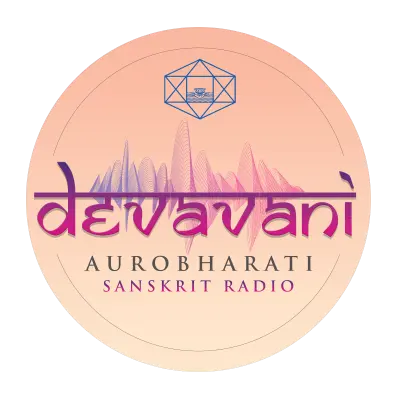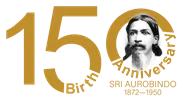Devabhasha Sanskrit
 Sanskrit ought still to have a future as a language of the learned and it will not be a good day for India when the ancient tongue ceases entirely to be written or spoken. (Vol.17, p.299)
Sanskrit ought still to have a future as a language of the learned and it will not be a good day for India when the ancient tongue ceases entirely to be written or spoken. (Vol.17, p.299)
The Sanskrit language is the devabhasa or original language spoken by men in Uttara Meru at the beginning of the Manwantara; butin its purity it is not the Sanskrit of the Dwapara or the Kali, it is the language of the Satya Yuga based on true and perfect relation of vak and artha. (Vol.11, p. 449)
- The ancient and classical creations of the Sanskrit tongue both in quality and in body and abundance of excellence, in their potent originality and force and beauty, in their substance and art and structure, in grandeur and justice and charm of speech and in the height and width of the reach of their spirit stand very evidently in the front rank among the world’s great literatures. The language itself, as has been universally recognised by those competent to form a judgment, is one of the most magnificent, the most perfect and wonderfully sufficient literary instruments developed by the human mind, at once majestic and sweet and flexible, strong and clearly-formed and full and vibrant and subtle, and its quality and character would be of itself a sufficient evidence of the character and quality of the race whose mind it expressed and the culture of which it was the reflecting medium.(Vol-14, p.255-56)
- A language, Sanskrit or another, should be acquired by whatever method is most natural, efficient and stimulating to the mind and we need not cling there to any past or present manner of teaching: but the vital question is how we are to learn and make use of Sanskrit and the indigenous languages so as to get to the heart and intimate sense of our own culture and establish a vivid continuity between the still living power of our past and the yet uncreated power of our future, and how we are to learn and use English or any other foreign tongue so as to know helpfully the life, ideas and culture of other countries and establish our right relations with the world around us. This is the aim and principle of a true national education, not, certainly, to ignore modern truth and knowledge, but to take our foundation on our own being, our own mind, our own spirit. (Early Cultural Writings, p.421) (Sri Aurobindo)
- Every child born in India should know it (Sanskrit), just as every child born in France has to know French. (The Mother)



